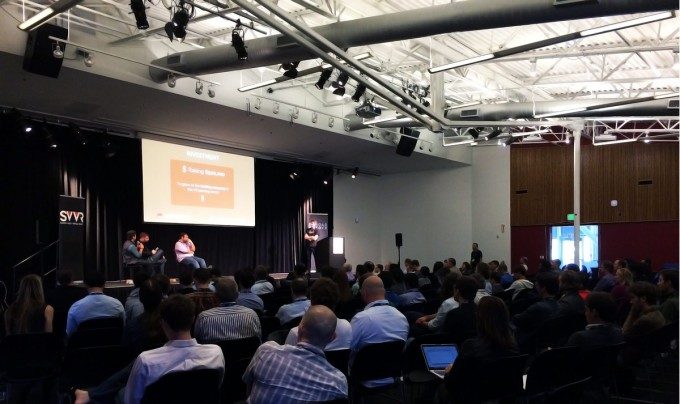Eric Romo has been around the venture fundraising block over the last 10 years, not only as the founder of AltspaceVR, where he’s raised some $16 million in venture capital, but also at former startup GreenVolts where he helped raise $120 million. At VR Launchpad last week he opted to use his time on stage to share some of those key lessons with VR entrepreneurs.
Romo concisely conveys not just his general tips on fundraising, but also those that are specific to the unique virtual reality landscape. This 11 minute talk is a must-watch for entrepreneurs that are new to venture capital.
Romo begins by emphasizing a focus on the actual problem that your startup is solving. Maybe the VR market will be big, but this alone is not the problem you are solving and shouldn’t be the opening to your VR startup pitch; really hone in on the problem you are solving and how VR enables you to solve that problem in a way that couldn’t be done before.
Romo also advises against pitching to investors who aren’t already convinced that virtual reality is going to turn into a major industry.
“…the investor that you walk into the room to pitch is already going to have their [virtual reality] market thesis… This battle is won or lost before you come in,” he said. “And if that investor doesn’t think that virtual reality is going to be a thing next year… if they don’t think it’s going to be a good time to invest in virtual reality, you’re not going to convince them otherwise.”
Instead, Romo suggests, focus on explaining how your company will survive in case the market goes slowly, such that you’ll be around when adoption really starts taking off, even if that’s longer than expected.
Another key insight is to make sure your demo blows people away…. and make sure you get feedback from people who will be honest with you. “The bar has been set by your peers, who have raised money around you, ridiculously high for the demo. Your demo needs to blow people away. Full stop.”
Romo says that friends, family, and colleagues, will tell you they love your demo, but you need to find people who are going to be completely honest about it.
“If those people are not taking off the headset with a stunned look on their face, then you need to go back to the drawing board a little bit, because your peers, who are going out there and telling the story of their company, are killing it,” he said. “And so you need to do the same with your demo. Your demo is your pitch. That is the thing that’s going to sell your company. That’s the state of the VR industry right now.”

And while your demo may be your pitch, the presentation is still a key component in winning over investors.
“The best definition of ‘entrepreneur’ that I’ve ever heard is: someone who commands resources they don’t control,” Romo said. “And so your presentation is an opportunity to show a potential investor that you can command resources that you don’t control… the presentation is for showing that you can be somebody who can compel people to your vision.”
He also advises to take the money you can get, even if it’s more than you were looking for.
“If you can put the capital to use well, you should take the money. There have been more companies that have failed because they ran out of cash than because their founders got disenchanted because they didn’t own enough of the company anymore. So take the money if it’s available and you can put it to use well.”
Romo stresses that fundraising is part of any venture business; you may hate it, but you better get used to it (or find someone to do it for you). Getting it over and done with should be a top priority so that you can return to building your product. Get it done quickly by sticking with common venture capital deal structures and don’t try to get fancy.
“[Fundraising] is not value-add for your company, this is not how you build product, this is not how you build value. When you get to the deal stage just get it done and move on,” he said.
As with any advice, Romo suggests you take his into consideration, but don’t think of it as one-size-fits-all for your specific situation.
“This is of course my experience based on what I’ve seen in the market over the last 10 years, but I am very confident that you can meet somebody in this room who will tell you the exact opposite of everything that I’ve said, but hopefully this is useful in some regards.”
Disclosure: AltspaceVR was a Launch Partner of last week’s VR Launchpad event which was co-organized by Road to VR.






